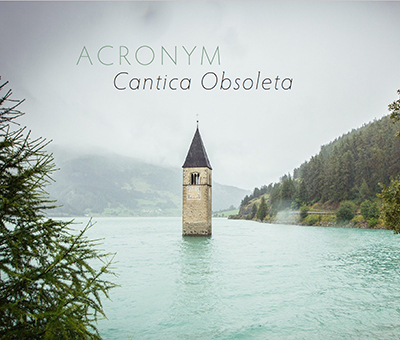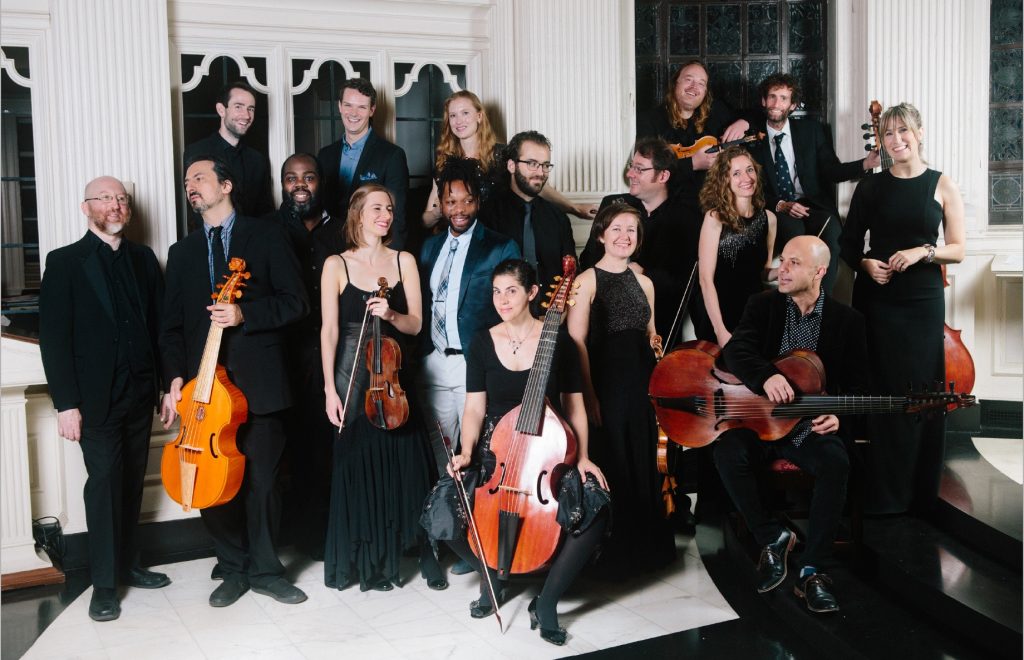by Jarrett Hoffman

For their 10th album, Cantica Obsoleta, the Baroque band has selected instrumental and vocal works from what is known as the Düben Collection, a set of 2,300 manuscripts in the library of Uppsala University in Sweden. According to the ensemble, the vast majority of the collection, assembled during the 17th and 18th centuries, has never been recorded nor published in a modern edition.
Based on what’s packaged here, the Düben is truly buried treasure. Mostly by German composers, as well as one Czech, an Austrian, and two Italians, these dozen works begin with so much personality and immediacy that they seem like they should last for only a couple of minutes, like pop songs.
Instead, they keep opening doors you don’t expect, suddenly trading in for new tempos and flavors. Eventually you meet a glorious, rewarding cadence at the end of the track — most of these pieces last between six and nine minutes — and you don’t know where the time has gone.
For that, we can thank not only the composers, but also these stunning, inspiring performers. Their precision and refinement are what you would expect from a top-notch classical ensemble. Their energy is rock and roll. ACRONYM crafts compelling phrases like there’s no tomorrow. That’s true of the whole 16-member band: all of the V’s, from vocals to violins, violas, viols, violoncello, and violone, not to mention harpsichord, organ, theorbo, and guitar.
A few works deserve special note. Among instrumental tracks, there’s the opener, Johann Heinrich Schmelzer’s Sonata a5 in d, the perfect introduction to ACRONYM’s combination of beauty and spunk. Another highlight, this one from near the end of the playlist, is Andreas Kirchhoff’s Sonata a6 in g, which closes with an epic level of pent-up tension released.
Each vocalist receives their own solo track. Composer Samuel Capricornus’ melisma gets a little silly in his Salvum me fac Deus, but the rich-voiced bass Jonathan Woody makes the most of it, and conjures an impressive array of emotions in the process. Reginald Mobley shows his remarkable sensitivity and way-up-high, countertenor range in Christian Flor’s Inter brachia salvatoris mei.
A long, thoughtful introduction from the instrumentalists of ACRONYM sets the stage for tenor Brian Giebler’s solemn, spirited, and dramatic portion of Herr, wenn ich nur dich habe, by Johann Martin Radeck. And soprano Hélène Brunet’s charming, effervescent tone and lovely melisma light up Liebster Jesu, trautes Leben by Caterina Giani, one of the few women composers represented in the Düben Collection.
Most of the vocal works follow fairly straightforward religious texts, but Giacomo Carissimi departs from that norm in his fascinating Doleo et pœnitet me. Kivie Cahn-Lipman, who plays cello and tenor viol on the album, chose the repertoire, and penned the liner notes, writes that Carissimi’s work is an example of the Latin Dialogue, “in which characters engage in a sung conversation on a sacred subject.” In this performance, not only do the singers truly become their characters, but the instrumental ensemble brilliantly points up the aura of each speaker.
Woody sings the role of a bitter and vengeful God, who laments his creation of humans and vows to eradicate them, for earth “is full of iniquity from their presence.” Next we hear the “Sinners,” imbued with infinite pathos by Brunet and Mobley. They plead with Jesus, convincingly sung by Giebler, for him to intercede. And eventually, after a dramatic back-and-forth, God comes around. In the end, they all repeat after him: that he is “a good, merciful, and very sweet God.”
Cantica Obsoleta is available from ACRONYM’s website.
Published on ClevelandClassical.com July 24, 2020.
Click here for a printable copy of this article





